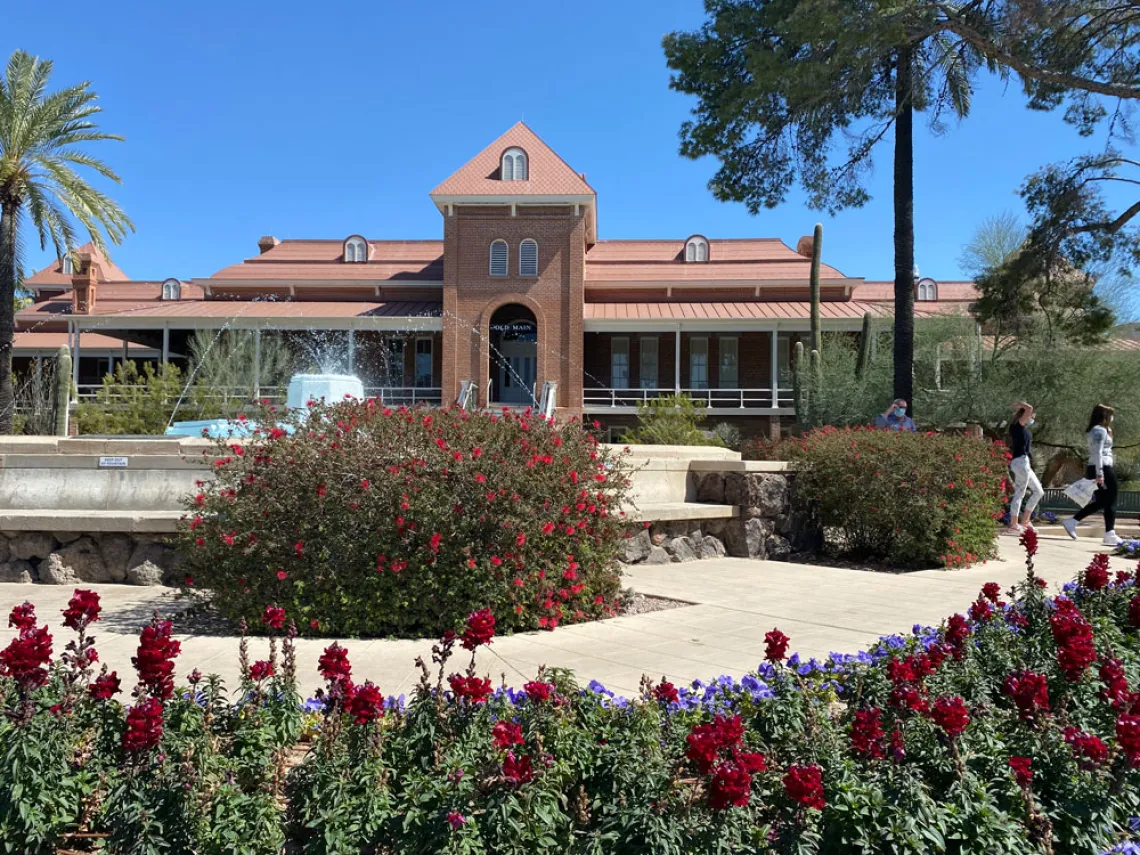UArizona and The University of Western Australia Partner to Offer Dual JD and MD Programs
The partnership creates new opportunities for students to earn advanced degrees in medicine and law and establishes a framework for research and collaboration between the two universities.

TUCSON, Ariz. – The University of Arizona and The University of Western Australia have formalized a partnership in which they will seek to initially offer two new degree programs, a dual J.D. and a global M.D. The partnership also opens the door for development of additional joint degrees and research collaborations.
As outlined in an agreement, it is proposed students enrolled in the degree programs will spend time on both campuses and receive credentials from both universities. A virtual signing ceremony was held on the evening of April 27, in Arizona (April 28 in Perth, Australia).
"This is an incredible opportunity for our students and faculty," said University of Arizona President Robert C. Robbins. "Our two universities are aligned in our commitment to developing solutions to global challenges, and there is so much that we can do together to advance research, innovation and the preparation of future lawyers and doctors."
"I am honored to be signing this agreement today, between two public research universities with significant public missions," said Professor Amit Chakma, vice-chancellor of The University of Western Australia, during a virtual signing ceremony.
"Both institutions are committed to excellence, and we recognize that that best way to succeed is to work with others. I am particularly excited about the global M.D. and dual J.D. degrees and the exchange of ideas that these programs will facilitate," Professor Chakma said.
The two universities already have research collaborations in the areas of astronomy, space science and physics.
"This new partnership will leverage existing strengths and create opportunities for our Schools, Ph.D. and graduate students to pursue international research projects in areas of mutual interest, including oceans and water, arid lands, environment, data science, space science, mining engineering and minerals, agriculture, global development and global health," Professor Chakma said.
"We are keen to expand our research portfolio in the international space. Post-pandemic, that will be more important than ever," said Liesl Folks, senior vice president for academic affairs and provost at the University of Arizona. Folks, a graduate of UWA, added, "The new degree programs create opportunities for students to move between the two institutions, engaging them in the kind of education that will prepare them to be effective in the global economy."
"I am incredibly excited for the medical program. What we are proposing is truly unique in the field," Michael Dake, senior vice president for Health Sciences at the University of Arizona, said. "Both institutions recognize that there is a tremendous shortage of health care workers and health care delivery in underserved and rural areas, around the world and in our home countries. The graduates of this program will help to fill those needs."
“I am excited about the valuable opportunities this agreement makes possible in research, education, and policy issues,” said Marc Miller, dean of the James E. Rogers College of Law at the University of Arizona.
“The partnership is a remarkable opportunity to be able to practice law in both the U.S and Australia, and we look forward to presenting this fantastic opportunity to our students," said Professor Chakma said.
The key facilitators of the partnership agreement are Brent White, vice provost for global affairs and dean for global locations at the University of Arizona, and Tayyeb Shah, deputy vice-chancellor (Global Partnerships) at The University of Western Australia.
"We look forward to working with UWA to launch the new professional degree programs," White said. "We know that these degrees are going to attract top students from around the globe to our universities – students who want to make an impact in the world."
Established in 1911 as the State's first university, The University of Western Australia (UWA) was also the first free university in the British Empire, actively promoting equal access to tertiary education for all social classes. UWA has an international reputation for remarkable and life-changing contributions across research, learning and teaching and is ranked in the world's Top 100 universities and number one in Western Australia. UWA offers a high-quality student experience and has an innovative course structure allowing students the flexibility to design courses to meet their needs and develop skills to increase their employment and education prospects. The University has an international reputation for excellence and enterprise. It is regarded as one of Australia's top research institutions, attracting researchers of world standing across the range of disciplines, with international leaders in many diverse fields and is ranked 92 in the Top 100 of Universities around the world (QS 2020). As one of the world’s leading, research-intensive universities, UWA is focused on providing a trusted source of open and accessible research and driving excellence through world-leading collaboration.
The University of Arizona, a land-grant university with two independently accredited medical schools, is one of the nation's top public universities, according to U.S. News & World Report. Established in 1885, the university is widely recognized as a student-centric university and has been designated as a Hispanic Serving Institution by the U.S. Department of Education. The university ranked in the top 20 in 2018 in research expenditures among all public universities, according to the National Science Foundation, and is a leading Research 1 institution with $687 million in annual research expenditures. The university advances the frontiers of interdisciplinary scholarship and entrepreneurial partnerships as a member of the Association of American Universities, the 65 leading public and private research universities in the U.S. It benefits the state with an estimated economic impact of $4.1 billion annually. For the latest on the University of Arizona response to the novel coronavirus, visit the university's COVID-19 webpage.
For UArizona press inquiries, please email uaglobal@arizona.edu

